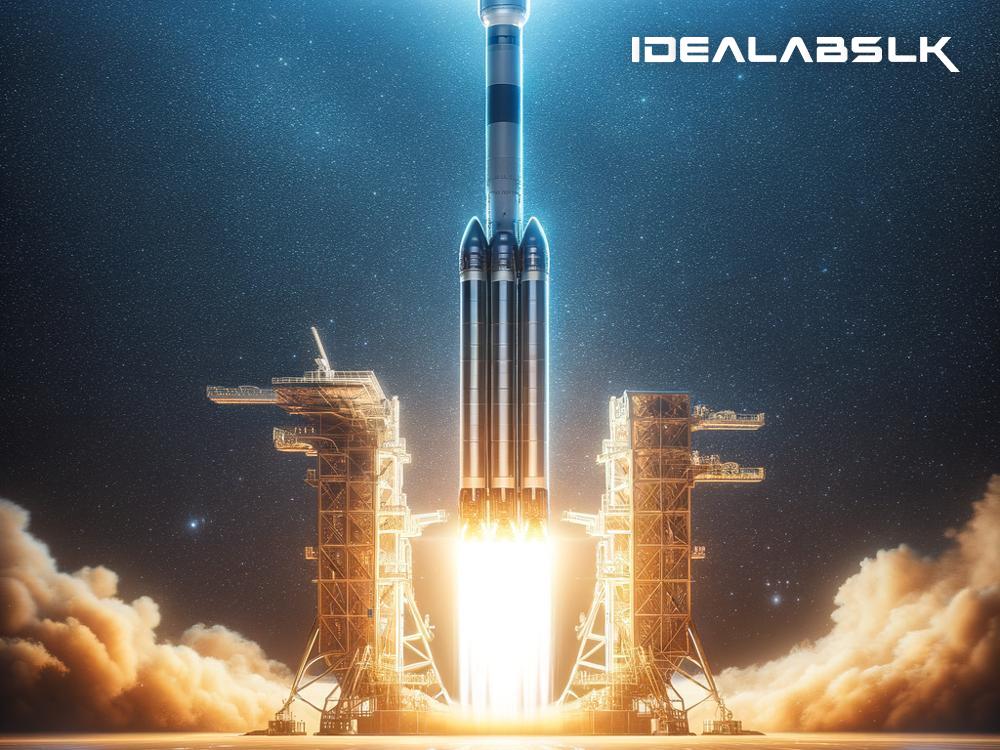Elon Musk's SpaceX and the Future of Space Logistics: Shaping Space Infrastructure
In the vast and mysterious expanse of space, a new era is dawning, one that promises to reshape our relationship with the stars. At the forefront of this cosmic revolution is Elon Musk's SpaceX, a company that's not just about launching rockets but is fundamentally transforming space logistics and infrastructure. In simple terms, SpaceX is making it cheaper, more efficient, and more reliable to send stuff into space, whether it's satellites, supplies for the International Space Station, or even humans.
The Dawn of a New Era: Reusable Rockets
Imagine buying a brand-new car, driving it to the supermarket, and then leaving it in the parking lot, never to be used again. Sounds absurd, right? Well, that's pretty much how space launches used to work. Rockets, costing millions of dollars, were used just once. SpaceX asked: What if we could land a rocket back on Earth and use it again? Enter the Falcon 9, the first rocket in history to do just that.
This groundbreaking achievement not only dazzled spectators but also slashed the costs of getting to space. Reusability is like the holy grail of space logistics, transforming space travel from an extravagant expenditure into a more regular and accessible endeavor.
Opening the Highway to Space: Starlink and Global Connectivity
SpaceX's vision extends beyond just sending things into orbit. With its ambitious Starlink project, SpaceX is deploying thousands of small satellites to create a high-speed internet network covering the entire planet, even the most remote corners. This isn't just about faster internet; it's about bridging the digital divide, providing connectivity to underserved regions, and opening a whole new realm of possibilities for education, healthcare, and economic development.
But Starlink isn't just a benevolent global project. It's also about laying the groundwork for space logistics. These satellites aren't just about internet; they're the first step in building a space-based infrastructure, a network that could support navigation, communication, and observation across the solar system.
The Gateway to the Stars: Refueling in Orbit and Beyond
Imagine going on a long road trip and not worrying about where the next gas station is because your car gets refueled in mid-journey. That's the kind of system SpaceX envisions for space travel. By developing spacecraft that can be refueled in orbit, SpaceX is opening the door to missions far beyond Earth's orbit, to the Moon, Mars, and beyond.
This concept lies at the core of SpaceX's Starship, a colossal spacecraft designed not just for orbital missions but for interplanetary travel. Starship's ability to be refueled in space is a game-changer, making the journey to Mars and beyond not just a possibility but an impending reality.
Building a Home Away from Home: Space Habitats and Colonization
SpaceX doesn't just want to visit other worlds; it aims to make it possible for humans to stay there. The vision of colonizing places like Mars might sound like science fiction, but SpaceX is taking tangible steps to turn it into science fact. From developing life-support systems to planning the establishment of self-sustaining colonies, SpaceX is tackling the significant logistical challenges of making life possible on another planet.
The Implications and Challenges Ahead
The advancements SpaceX is making in space logistics are both exhilarating and daunting. The reduction in launch costs and the development of reusable rockets have invigorated the space industry, leading to a surge in satellite launches, space exploration missions, and even private space travel.
However, these advancements also come with significant challenges. The increasing number of satellites and space debris in Earth's orbit poses risks for collisions and space traffic management. Additionally, the implications of colonizing other planets raise ethical and environmental considerations that humanity must carefully navigate.
The Future Is Now
As we stand on the brink of this new era in space exploration, it's clear that SpaceX is playing a pivotal role in shaping the future of space infrastructure. By making space more accessible and developing the logistics for sustainable off-Earth living and exploration, SpaceX is not just reaching for the stars but planning to stay there.
In this grand adventure, the sky is not the limit but the beginning. As Elon Musk's SpaceX continues to push boundaries and redefine what's possible, we're all invited to reimagine our place in the cosmos. The future of space logistics and infrastructure is unfolding before our eyes, and it's a future full of promise, challenges, and endless possibilities.

